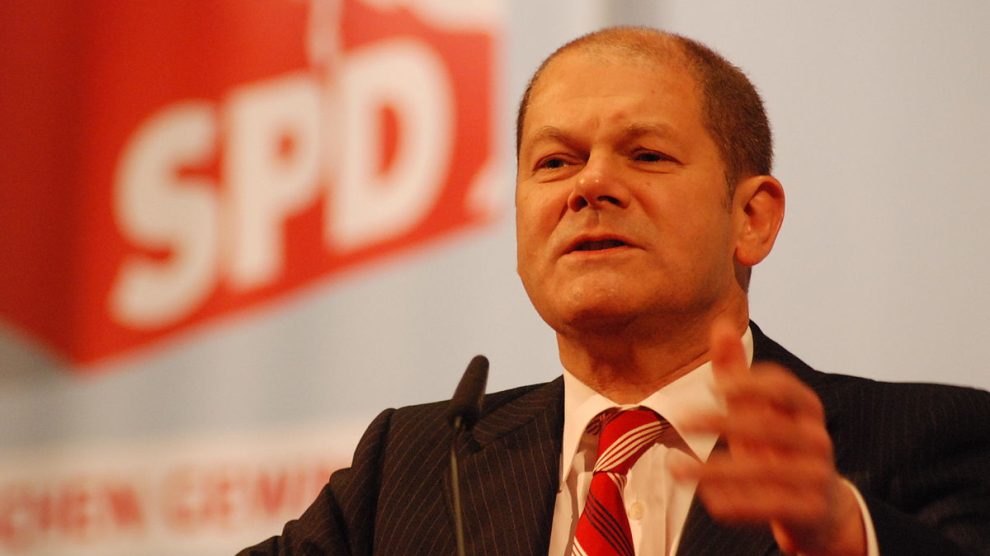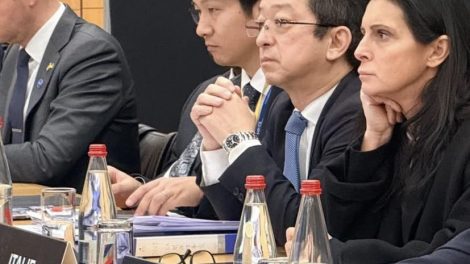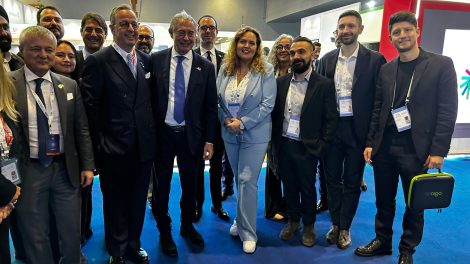Berlin okays key Chinese purchase. After a long internal tug-of-war, the German government gave the go-ahead for Chinese State giant Cosco to enter the Tollerort container terminal in the seaport of Hamburg through a 24.9% stake in Hafen und Logistik AG (HHLA), a company owned by the city’s administrative body.
- The announcement was made yesterday, just hours after German Foreign Minister Annalena Baerbock met her Chinese counterpart, Qin Gang…
- … and stood alongside her French counterpart, Catherine Colonna, as she explained that both Berlin and Paris “are trying to limit our dependencies when they are excessive. We are talking about de-risking rather than decoupling” – what they called a “shared message” vis a vis China.
A contentious deal. The acquisition has been a matter of friction within the German government, as some in the executive – including Ms Baerbock and her Greens – are keen on re-evaluating Germany’s economic ties with China.
- Back in October, German Chancellor Olaf Scholz, a former mayor of Hamburg, overruled several ministers in his government (including the FM) by greenlighting the Cosco-HHLA deal while reducing the stake from 35% to 24.9% so as to remove any possible blocking minority.
- Last month, German media reported that the Federal Office for Information Security (BSI) had classified the Hamburg seaport as a critical infrastructure – which did not imply an automatic halt to the operation but prompted the federal government to think carefully about the deal.
- However, after Wednesday’s decision, the acquisition will be finalised “soon,” as confirmed by HHLA.
The Italian link. This deal also affects Italy, which is grappling with the delicate decision of whether to renew its adherence to the Belt and Road Initiative – which encompasses the strategic seaport of Trieste, long been identified by Beijing as the perfect port of call for the BRI in the Adriatic Sea.
- Back in 2021, HHLA struck a deal to acquire 50.01% of Trieste-based company Piattaforma Logistica Trieste, which went through in early 2022.
- As Merics analyst Francesca Ghiretti told us, the Sino-German deal “does not seem to have direct repercussions on Trieste.” However, a wider look raises competition issues. “Cosco, which receives state funds from China, does not compete at the same level as other companies in the sector, [and] its dominant position in the market is a potential geopolitical tool for Beijing.”
China’s eye is on Italian ports. Beijing is pushing Rome to remain in the BRI, blaming “US-led anti-China atmosphere” for Italy’s considerations about leaving it. In an editorial supporting this line, State-owned Global Times posited that “under the BRI framework, Chinese investments in European countries always eye win-win results” and brought forth the example of the Piraeus seaport in Greece, where Beijing invested heavily.
- “Port development is also a part of the BRI deal between China and Italy. And the Greek example is sufficient to indicate that if the relevant projects go smoothly, the potential for China-Italy cooperation will go far beyond the current level. The same also applies to other European countries,” reads the text.
- Nevertheless, the Italian government is aware of the potential risk. In late March, PM Meloni underscored the seaport’s strategic importance, while Silvio Berlusconi, a political leader in her majority government, warned more explicitly against “unfriendly” Chinese aims.





